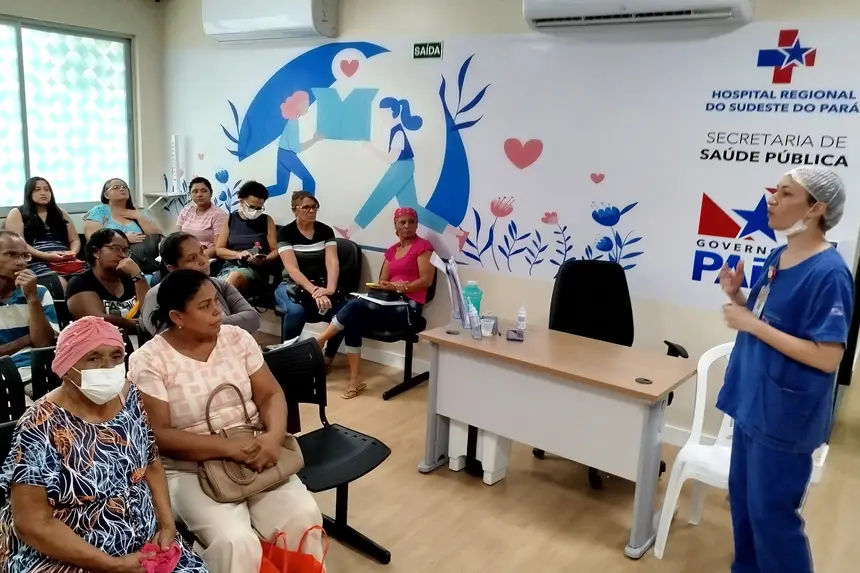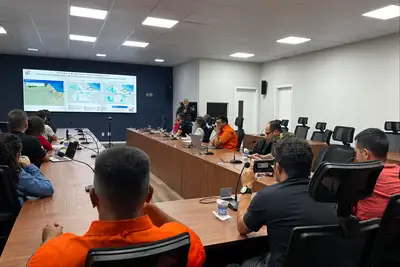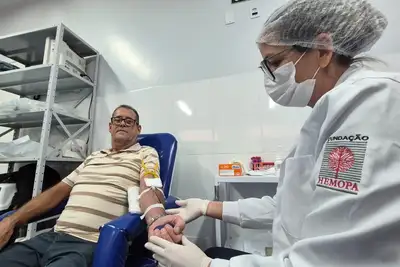Regional Hospital of Marabá promotes educational action on Meningitis
The unit of the Government of Pará alerted about the main symptoms of the disease, such as high fever, neck stiffness, vomiting, and mental confusion.
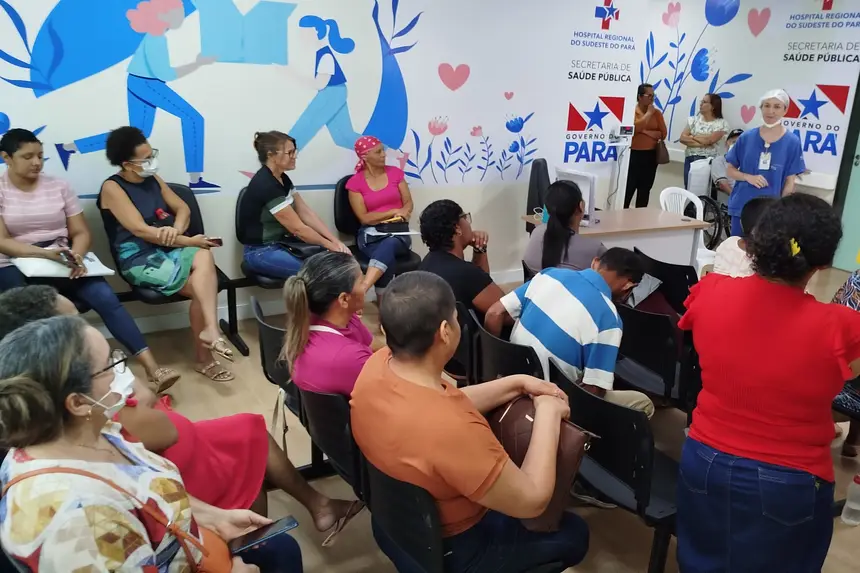
On this Thursday (24), World Meningitis Day, the Regional Hospital of Southeast Pará Dr. Geraldo Veloso (HRSP), in Marabá, held a series of educational lectures aimed at the unit's patients. The initiative aimed to reinforce prevention measures and raise awareness about the disease.
The activity is part of the "Health in Focus" project developed by the hospital's Humanization sector. The proposal is to inform and welcome patients during the waiting time for consultations and exams, promoting a more humanized environment and disseminating information on prevention, disease management, and health care.
Antônia Sousa, 47, a resident of Marabá and referred for an oncology consultation, praised the action. "These lectures help clarify doubts and remind us of the importance of taking care of our health. I was surprised by some new information about meningitis and I will share it with my family," she stated.
Fernanda Silva, 37, from Itupiranga, who was waiting for an MRI, also highlighted the relevance of the initiative. "It is important to receive health information while we wait for care. This transforms a waiting moment into something productive and useful for our lives," she evaluated.
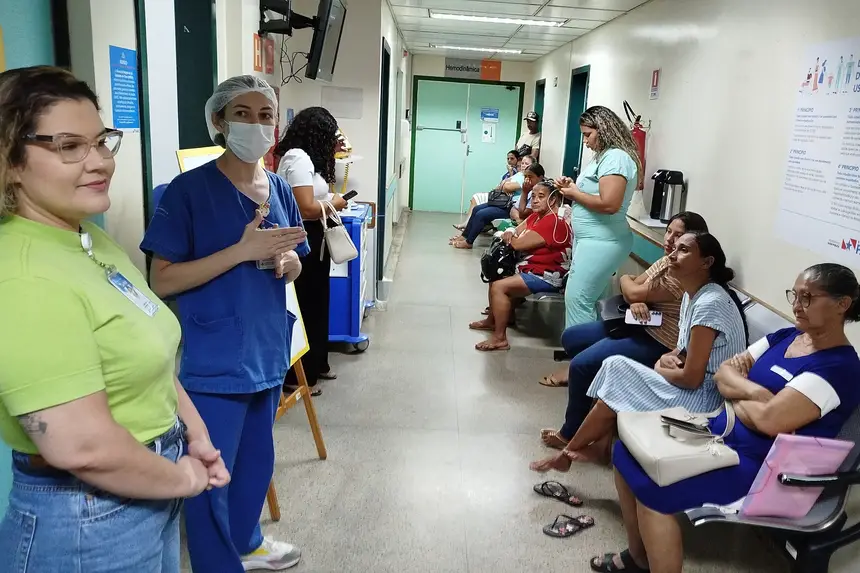
According to data released by the Ministry of Health, Brazil recorded over 15,000 reported cases of meningitis in 2024. Of this total, more than 8,000 were confirmed, representing 53.6% of notifications. The information was presented during the launch of the National Plan to Defeat Meningitis by 2030.
Awareness and prevention
The action was carried out under the management of the Institute of Social and Environmental Health of the Amazon (ISSAA) and the State Department of Public Health (Sespa), with guidance on the main types of meningitis, initial symptoms, the importance of vaccination, and the need to seek immediate medical attention in the presence of suspicious signs.
During the lectures, nurse Marília Sampaio explained that meningitis is an inflammation of the membranes surrounding the brain and spinal cord, which can be caused by viruses, fungi, or bacteria — with the latter being the most severe form that requires emergency care.
"Meningitis can progress rapidly, so early diagnosis is essential. With campaigns like this, we can alert the population to symptoms such as high fever, neck stiffness, vomiting, and mental confusion," the professional emphasized.
Marília also stressed the role of vaccination in prevention. "Immunization is the most effective way to avoid the more severe types, especially bacterial meningitis. It is essential that parents and guardians keep children's vaccination schedules up to date, and that adults pay attention to vaccination campaigns, especially those belonging to more vulnerable groups."
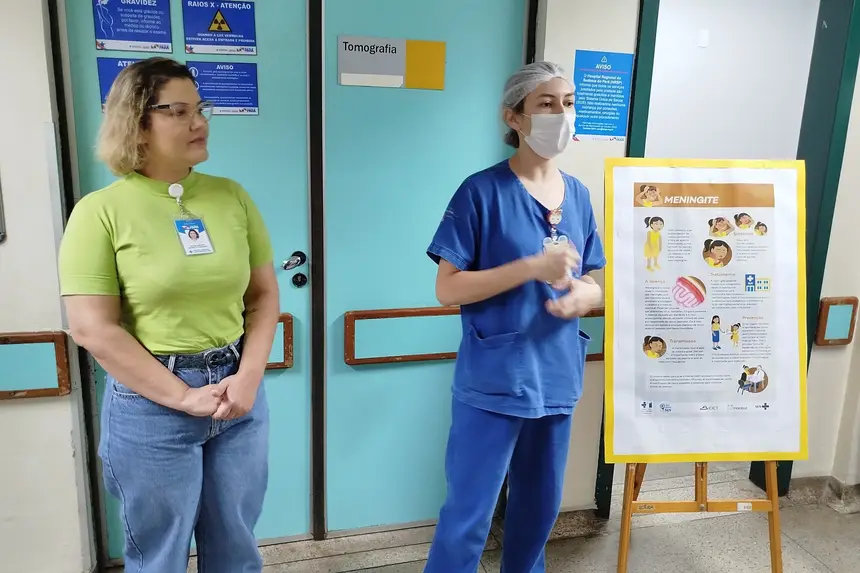
She also reinforced the importance of early care: "In the presence of any suspicion, the patient should be referred immediately for medical evaluation and the start of treatment, which may include the use of antibiotics, depending on the source of the infection. The sooner care is initiated, the greater the chances of recovery without sequelae."
Reference structure
The Regional Hospital of Southeast Pará is a reference for the region and offers 100% of its services through the Unified Health System (SUS). The unit has 135 beds, with 97 dedicated to clinical hospitalization and 38 allocated to Intensive Care Units (ICU) — in adult, pediatric, and neonatal modalities.
Text: Ederson Oliveira



